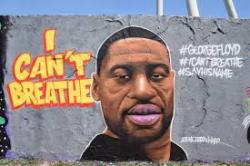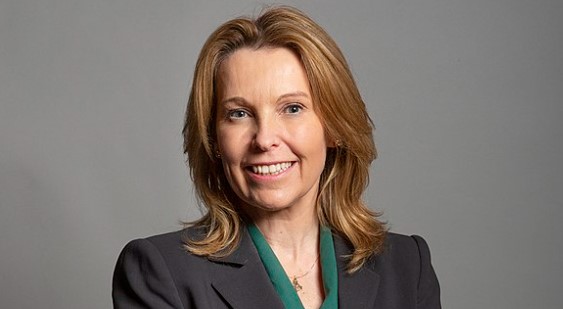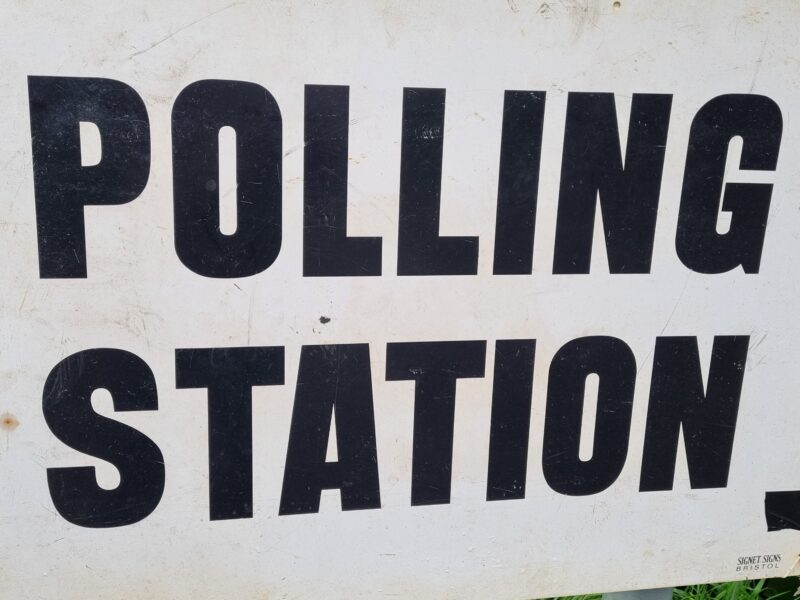For the best part of two weeks now, there have been mass protests in the USA, a virtual uprising, supported by millions of workers and youth around the world, in revulsion at the murder of George Floyd in Minnesota. As much as the coronavirus pandemic has been an important turning point in US politics, the murder of yet another unarmed black person may turn out to add another significant twist to US politics. For many workers in the black areas of US cities the murder is the last straw. “We are sick and tired,” one spokeswoman said, “of being sick and tired.”
What is clear is that had there not been a violent reaction and even riots, the four policemen who responsible for this killing would not have been arrested, because that has been the pattern in almost all of the black deaths at the hands of police or self-appointed vigilantes.
Riots over racial discrimination and disadvantage run right through the history of modern America. In the 1960s uprisings in black areas were an almost regular feature, but at that time the American capitalist class, shaken to its foundations by the strength and anger of the black movements, had enough economic room to be able to make concessions and promote the development of a black middle class.
Black mayors and politicians
Reforms were introduced for a period of time they allowed for some increases in living standards; black police officers became a common sight in all the major cities, as well as black mayors and politicians. But for the big majority of black working-class communities there were no fundamental changes. Indeed, their situation was worsened as the white middle-classes moved, along with a few blacks, out to the suburbs and the inner cities were allowed to decay, with jobs and industries disappearing, and education, health, welfare services run into the ground.
Since the crisis of 2008, and even more so in the last four months because of the pandemic, black workers have suffered disproportionately. The Financial Times of June 4, published the results of its own survey, (with the US Peterson Foundation), showing the extent of the bias.
“Far more African-American than white voters have suffered a reduction in their family’s income due to the coronavirus outbreak…74 per cent of black voters reported a financial hit, compared to 58 per cent of white voters…more African-Americans had lost their jobs since the outbreak began, highlighting the growing economic inequalities at a time when Americans are protesting against the death of George Floyd.”
Whereas 25% of black workers who responded had been dismissed or furloughed in the recent period, the survey found, this applied to less than 20% of white workers. Compared to white respondents, black families are far more dependent on relief programmes even for basic necessities like food and rent and are far less optimistic about their future prospects. Given the bungling of the Trump administration and the fact that over 100,000 Americans have died – again disproportionally affecting people of colour – it is hardly surprising that there is a groundswell of rage within black communities.
Health care and life expectancy
To make matters worse, if that is possible, for many black American communities, the Unites States ‘law enforcement’ agencies are like an army of occupation. Over two million people are incarcerated in the US, with African-Americans five times more likely to be incarcerated than their white counterparts. Astonishingly, more than half of all black men without a high-school diploma are jailed at some point in their lives. Such appalling inequality bleeds into basic healthcare and the average life expectancy of an African-American male is 72, the same as in Palestine or Honduras. It is all very well politicians like Obama asking for the anger to be channelled into an election in six months, but election laws in many states bar anyone from voting who has record of a felony offence, thereby excluding tens of thousands of black voters.
The huge cost to stand a candidate is also designed to exclude any radical candidates so the whole party political system is weighted to maintain a status quo.
As important as it is to highlight the appalling bias in jobs, income and financial standing, it is not the only issue. For people of colour, the murder of George Floyd brings home to them that they cannot take for granted even the basic right of being able to live in safety with dignity, and without the daily fear of prejudice and racism from the forces of the ‘law’.
It is not surprising that the police are seen in so many black communities as an occupying force. A 2015 study by the American Civil Liberties Union found that black residents of Minneapolis were “8.7 times more likely than whites to be arrested for a low-level offence”. The police department is a particular problem. Black people constitute 20% of the city’s population but accounted for more than 60% of the victims of police shootings from late 2009 through May 2019.A local news report that year, which cited official police data, found that just 5.4 per cent of Minneapolis police department officers lived in the city and this is a typical figure, repeatable in almost all US cities. There are no figures collated for the numbers of black Americans killed by the police every year, but according the Financial Times (May 29), “efforts by news outlets and other groups to collate such figures suggest that about 1,000 people die at the hands of the police each year”.
Liverpool, Manchester and Birmingham
What we also need to take remember is that similar figures could be produced for the policing of inner-city areas in Britain. Most Metropolitan police officers do not live in the areas they patrol; they live in leafy, overwhelmingly white, suburbs, like their American counterparts. That is also true of police forces in Liverpool, Manchester, Birmingham and other cities. In many cases the only contacts these white police officers have with black and Asian youth is when they are called to deal with crimes or suspected crimes. Many of them have no natural empathy with or understanding of where black and Asian youth are coming from and what their hopes and aspirations might be.
As a result, black people in Britain are 40 times more likely to be stopped and searched (Guardian, May 4, 2019). Young black people are nine times more likely to be locked up in England and Wales than their white counterparts (Guardian, September 1, 2017), while BAME offenders are far more likely than others to be jailed for drug offences. (Guardian, January 15, 2020).
Novaramedia recently carried an excellent article on the number of black people killed in the UK, sometimes in the custody of police, and commenting on the much more muted reaction here compared to in the USA. The article makes the point that “The last time a British police officer was convicted for a death in custody was 1969. This is all the more astonishing when you realise the numbers involved: more than 1,700 people have died in such conditions in England and Wales since 1990”.
Black Lives Matter and casual racism
We should not underestimate the extent and depth of racism within British society. In the last week, the name Lee Rigby briefly trended on Twitter. Rigby was a British serviceman killed by jihadists in 2013. What is the significance of ‘Lee Rigby’ trending on Twitter, in the context of the outrage to George Floyd’s killing? What is the significance of social media posts, replying the Black Lives Matter message with, “All Lives Matter”? What is the significance of sarcastic comments on Facebook about youths looting TVs and clothes from shops in US cities? These are indications of the subtle – and not so subtle – racism that pervades our society.
Lee Rigby’s murder by deranged terrorists has no comparison whatsoever to George Floyd’s murder by the supposed upholder of ‘law and order’. Even to invite a comparison is just an excuse for racists to crawl out of the woodwork. Making a glib comparison between Rigby and George Floyd is a racist act. In the context of Floyd’s murder and Black Lives Matter, to reply with ‘All Lives Matter’ is a racist act. To make sarcastic comments about looting clothes and TVs is a racist act.
We would like to think that the ignorant people who conduct themselves in this way are in a small minority, but we need to be ever vigilant to call it out when we see it and to keep it a small and shrinking minority. We would like to think that such behaviour has no place within the labour movement, but, again, we have a responsibility to ensure that is the case and to call out racism, subtle or not, when it shows itself.
Youthful and racially-mixed demonstrations
There are two stand-out features in all the dozens of mass demonstrations that have taken place in cities across the USA: one is the overwhelming predominance of youth and the other is the racially-mixed character of the marches. Both of these can give us grounds for optimism. It is a positive development to have young white people supporting the demonstrations and to hold up banners saying Black Lives Matter, as it is for a handful of police officers here and there to ‘take the knee’ to join the protest. But how many white people really can understand how difficult it is to grow up as a person of colour in ‘white’ society? Really understand.
Without the same personal experiences as black people, it is difficult for anyone else to understand the necessities of life as they see them: the necessity of learning from a very young age to ignore casual racist taunts and name-calling at school and around the neighbourhood. Of learning to scan a pub when you go into it with your mates for the first time, to scope out any danger of being harassed by white, racist louts? Of learning to moderate your language and tone in any conversation – even when talking about racism – for fear of making white friends ‘uncomfortable’? Of understanding how even conversations about race can be carefully ‘controlled’ so that no white person feels uncomfortable? Of understanding why a pregnant black woman in a US city might be desperate to have a daughter (because so many sons die from violently)? Of learning to think twice about driving, jogging or walking near a white neighbourhood in case you are stopped by police, beaten or killed?
How many white people really understand those things, not having experienced them first-hand?
Terrible toll on mental and physical health
Casual, institutionalized and systemic racism is a cancer that runs right through capitalist society and even, to a lesser degree, in those organisations which are the embryo of a new society, that is the organisations of the labour movement. Racism takes a terrible toll on the lives of black and Asian people in terms of mental and physical health, confidence and self-respect, quite apart from issues like economic and financial security. It makes it doubly hard, but doubly important, for the labour movement to reach out to BAME communities and workers and to become the best champion of their interests.
In an article on our website in the last month, we celebrated the birthday of Malcolm X, who came, in the months before his assassination, to develop a class position of the question of race. He came to understand the natural affinity and common aspirations of black workers and white workers, both of whom had an interest in challenging the capitalist system. “You can’t have capitalism without racism”, he said, in one of his last speeches. He became a far more dangerous threat to the capitalist class on those terms than he had ever been as a black nationalist and that may have had a lot to do with his murder.
Capitalism thrives on dividing workers
Capitalism thrives on division: dividing workers based on their language, race, religion, nationality, ethnicity, heritage, sex, skill level, education, place of work, age and anything else that comes to hand. Divide and rule is the name of the game. The capitalist class is a tiny, vanishingly small number of the total population – less than one tenth of one per cent. It governs in ‘democracies’ like the USA and Britain principally by lies, secrecy, bribery and through its control of the entire culture apparatus of education, media and communications. But an essential element in its control is also division, without which a unified and organised working class could sweep capitalism aside in weeks, days or even hours.
The struggle against racism, therefore, is not a moral fight. The morality of the labour movement is based on what is in the best interests of the working class and that means the unambiguous equality of all working-class people, without exception. Our fight, for a new society based on the common ownership of the means of production and on satisfying the basic needs of all workers, is the only fight that can properly and permanently eliminate racism and racial prejudice. The fight against capitalism is the fight against the system that breeds racism and depends on racism.
It is not good enough for Labour politicians to express an opposition to what they call ‘systemic’ racism, but who are not prepared to fight against the very system that thrives on racism. It is not surprising that the stance of so many Labour leaders leaves many black workers and youth alienated from the Party and unsure as to what it can offer, if anything.
We should take inspiration from the fight of the youth of the USA, who have risen in their hundreds of thousands, black and white alike, to demand real change and an end to the racism that is built into the DNA of the system. Many of them are explicitly linking racism with capitalism, with job insecurity, with housing, education, health, welfare and other concrete issues faced by ordinary workers. There will be no social ‘peace’ until those issues are resolved.
We cannot at this point predict the outcome of the November Presidential and Congressional elections in the US. But we can say with certainty that the uprising that has followed the murder of George Floyd will be seen to have been an important milepost in the titanic changes that are now beginning to take place in American society.
June 6, 2020



